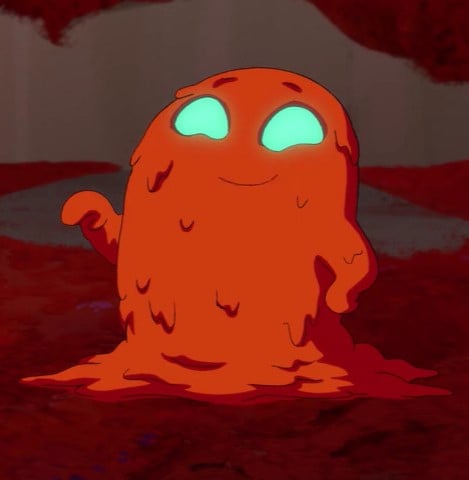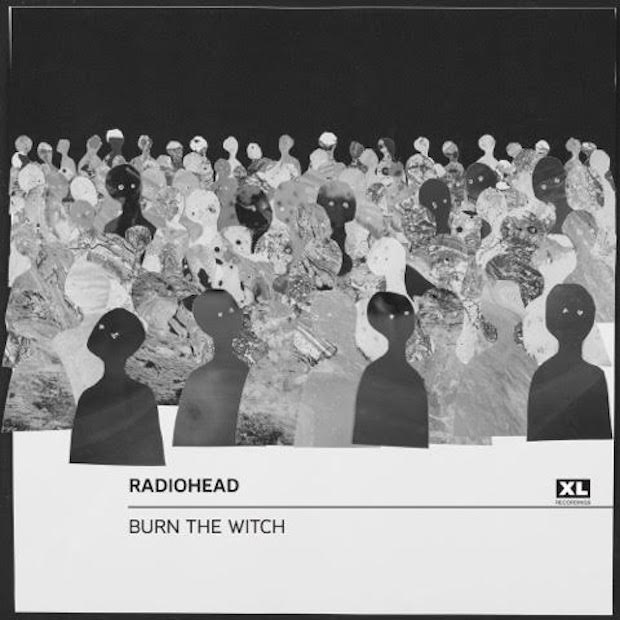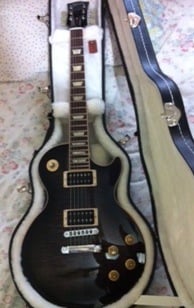Progarchives.com has always (since 2002) relied on banners ads to cover web hosting fees and all.
Please consider supporting us by giving monthly PayPal donations and help keep PA fast-loading and ad-free forever.
/PAlogo_v2.gif) |
|
Post Reply 
|
Page 12> |
| Author | ||||
Toaster Mantis 
Forum Senior Member 

Joined: April 12 2008 Location: Denmark Status: Offline Points: 5898 |
 Topic: Is indie rock in a cultural identity crisis? Topic: Is indie rock in a cultural identity crisis?Posted: May 25 2015 at 06:51 |
|||
|
A musician from that scene seems to think so and has written a book about how indie rock didn't really work out in the end as a cultural movement and now has been assimilated by the same mainstream culture industry which it at first set out to oppose as an artistic avant-garde. The journalist interviewing him for Esquire concurs, as does an ex-member of Don Caballero he's interviewing about the subject.
I'm somewhat confused about the whole thing. I get the impression that indie rock might have been a "cultural movement" back in the 1980s and maybe the early 1990s when it came into being as a reaction against the bleak conformity of the Margaret Thatcher/Ronald Reagan/John Major/George Bush era despite its do-it-yourself business ethos at the same time being very much in tune with the right-libertarian political zeitgeist of that decade when you think about it... but certainly not post-Lollapallooza, let alone post-Pitchfork Media. Whatever you think of 1980s indie rock having penetrated the mainstream through cultural osmosis now... it just doesn't have the same kind of strong identity as psychedelia, glam, heavy metal, punk, hip-hop, goth rock or industrial and I don't think it's had anything like this since back in the grunge era. I can say for myself that haven't heard anyone identify themselves with the scene the same way as those I mentioned above. Most of the complaints about indie rock's mainstreaming I've encountered come from one of two sources: Either punks who think indie rock having separated itself from punk culture, becoming less noisy and more "endearing" to academic types, marked the beginning of the end for it being a "cultural force"; or from grunge veterans who are half nostalgic for when their favourite music dominated the airwaves, half mourning what alternative rock turned into in the late 1990s as a result of said mainstream breakthrough. That brings us to how the indie rock musician interviewed in the first article has jumped ship to the stoner rock scene, a modern reconstruction of psychedelic rock's harder end which heavy metal evolved from. It's arguable whether those genres have any kind of genuine countercultural significance in North America and Western Europe today outside of unusually religious and conservative regions (different story in Eastern Europe or Latin America or Southeast Asia) except for isolated cases, but they've got a stronger connection to their heydays' cultural Zeitgeist and sense of their respective scenes as movements with unifying philosophical ideals behind their aesthetics. I don't think indie rock ever had that type of "collective consciousness", at least not after it became a separate scene from punk. I'm not sure myself if I think indie rock is really spent as a cultural force, as someone who's been exploring it more and more but it's the gothy/metallic/noisy/punky corners I keep finding new interesting music in so maybe they don't count. I didn't even know it ever was the type of "movement" whose heyday the author laments to begin with, to the point you could call it a "cultural force" in the first place. His specific examples of what indie rock used to be I from my place of the generation gap consider more outside-the-box thinking punk bands half the time. |
||||
|
"The past is not some static being, it is not a previous present, nor a present that has passed away; the past has its own dynamic being which is constantly renewed and renewing." - Claire Colebrook
|
||||
 |
||||
infocat 
Forum Senior Member 

VIP Member Joined: June 10 2011 Location: Colorado, USA Status: Offline Points: 4671 |
 Posted: May 25 2015 at 11:56 Posted: May 25 2015 at 11:56 |
|||
|
I've never been able to determine what "indie rock" is anyway...
|
||||
|
--
Frank Swarbrick Belief is not Truth. |
||||
 |
||||
Icarium 
Forum Senior Member 

VIP Member Joined: March 21 2008 Location: Tigerstaden Status: Offline Points: 34050 |
 Posted: May 25 2015 at 12:36 Posted: May 25 2015 at 12:36 |
|||
|
where do one drove the line between alternative rock and indie rock?
|
||||
 
|
||||
 |
||||
Polymorphia 
Forum Senior Member 

Joined: November 06 2012 Location: here Status: Offline Points: 8856 |
 Posted: May 25 2015 at 12:52 Posted: May 25 2015 at 12:52 |
|||
|
There's one thing that the author said that I very much agree with, about the work of the 80s/early 90s bands "carving out" a place for later bands who wanted to make album-oriented, ambitious music. Those bands formed a community and, in my opinion, indie rock was never a cultural force trying to overthrow the mainstream bourgeoisie, but that community of people making records that didn't fit into the mainstream paradigm, quietly at first, then demonstrating more influence as the 90s wore on.
Where the author goes wrong, I think, is that he never puts out an effort to describe what went wrong (if anything) with the indie community in literal terms. I mean, he mentions liking music made with "head, guts, and crotch," referring to music that is intelligent, but also intense and visceral. Yet, the Cure or the Smiths or REM, for instance, are hardly as intense as many of the groups he mentioned. In fact, a lot of that music was made in rebellion to the heaviness of the mainstream rock of the 80s, just like in the 00s. I also wondered what the musician who said she quit indie rock because it became "janglier" thought of the jangly post-punk groups in the 80s who were founding fathers of the scene. Ever since music criticism came to play a part in indie rock's development, there's been a self-consciousness on the part of musicians. On the one hand you have the rock classics, the ones that get perfect ratings because they were so important to indie rock and rock at large. On the other hand, you have the hip-hop/electronic critical darlings. Namely, Kanye West whose critical reign has been something like that of an oppressive artistic overlord. Even if there were records made that were better than My Beautiful Dark Twisted Fantasy (I believe there has been, even just within hip-hop), it wouldn't receive better reviews or a higher place on a decade end list, particularly on Pitchfork, a key player obviously (and one who even wrote that Kanye West's name would be sufficient for the top slot in a mid-decade list). The presence of the unassailable critical darlings past or present invades the thinking of the musicians who pay attention to review columns, and indie rock, historically, has. Confronted with this dilemma, there's a lack of artistic confidence. Artists are content to blandly revive their favorite records of yesteryear, avoid being or saying anything "pretentious," and thereby play it safe with critics, who can appreciate a good bit of nostalgia for the records of their youth. As a musician, that kind of worshipping treatment of artists hurts my own confidence. Bands who are capable of flawed albums and dropping in ratings are inspiring because they're human. I can view the flaws in my own music as something that can be worked out, and view hard work, thought, passion, and other human qualities as the means of creating a masterpiece, not celebrity or public antics. (Not that I view any artist as unassailable, but subconsciously, I find myself afraid that my music will fail to accomplish my aspirations). Because of revivalism, and the presence of a lot of genres to revive, there is a lack of unity. I don't mean homogeny. A lot of present bands are already homogenous with past one, but there is a lack of taking on the same ideas and elements from varying backgrounds and perspectives. There's a scarcity of new ideas in the first place. Don't get me wrong. I like a lot of un-innovative or subtly innovative (I would consider Tame Impala the latter) artists of today. Some revivalist works do bare some individuality in terms of personality and undeniable artistry. But they aren't very impressive or inspiring. Band's ideas of what they can be and what they can create are greatly reduced, and that idealism was, to me, what started to disappear in the 00s and even moreso in the 10s. Edited by Polymorphia - May 25 2015 at 12:56 |
||||
 |
||||
zravkapt 
Special Collaborator 

Honorary Collaborator Joined: October 12 2010 Location: Canada Status: Offline Points: 6446 |
 Posted: May 25 2015 at 22:20 Posted: May 25 2015 at 22:20 |
|||
That's actually a good question. There is no point where one ends and the other begins. Nowadays stuff from the '80s will be considered 'indie' while at the time it was labelled 'alternative' or 'college rock'. Other '80s styles like industrial and hardcore punk were considered 'alternative' in the '90s. I personally remember the term 'indie' referring to anyone on an independent label, whether they were jazz or metal. Roughly around the year 2000 the term becomes used for artists who otherwise would have been considered 'alternative'. The only major differences between '90s 'alternative' and '00s 'indie' was the former had lots of 'classic rock' influences and guitar solos, while the latter has influence from New Wave, synth-pop and disco-rock. |
||||
|
Magma America Great Make Again
|
||||
 |
||||
Icarium 
Forum Senior Member 

VIP Member Joined: March 21 2008 Location: Tigerstaden Status: Offline Points: 34050 |
 Posted: May 26 2015 at 01:24 Posted: May 26 2015 at 01:24 |
|||
|
indie rock is now'a'days more of a hipster thang' while alternative is for the cool kidz. [B-)]
|
||||
 
|
||||
 |
||||
tamijo 
Forum Senior Member 
Joined: January 06 2009 Location: Denmark Status: Offline Points: 4287 |
 Posted: May 26 2015 at 02:59 Posted: May 26 2015 at 02:59 |
|||
|
Its just like every other "cultural movement", young kids identify with it, but after a while it becomes more about the money that the music, so the music stagnate into repetisions, while the fans get older, get kids and a 9-5 job. That is going to happen forever, and it not a bad thing, because then a new generation comes around, with a new "revolution", and they think they "play from the guts" ect ect ect.
|
||||
|
Prog is whatevey you want it to be. So dont diss other peoples prog, and they wont diss yours
|
||||
 |
||||
Toaster Mantis 
Forum Senior Member 

Joined: April 12 2008 Location: Denmark Status: Offline Points: 5898 |
 Posted: May 26 2015 at 03:38 Posted: May 26 2015 at 03:38 |
|||
Yeah, that's the main head scratcher. Indie rock just to my knowledge never had as strong an "ideology" as glam rock, industrial, punk, psychedelia or metal.... at least not since it became a separate scene from punk/new wave which it overlapped with back in the 1980s. It's more about doing things differently than the mainstream rock world, but it's not rooted in as clearly defined a set of philosophical ideals presented as incompatible with the cultural mainstream as the other ones I mentioned and hence I don't think it's necessarily selfconscious about opposing the rest of society. Notice the scare quotes around "ideology", since it's only really punk and some parts of industrial who frame that in political terms but I couldn't think of a more accurate term. I would even say that there's less of an antagonistic relationship between mainstream and independent music these days because the internet and other things have resulted in an overall de-centralization of the culture industry. The fact that the author of that book's now migrated to the psychedelic hard rock community (I dislike the term "stoner rock") is very telling in my book, "psychedelic culture" is pretty vague these days but I do think it's a stronger identity. |
||||
|
"The past is not some static being, it is not a previous present, nor a present that has passed away; the past has its own dynamic being which is constantly renewed and renewing." - Claire Colebrook
|
||||
 |
||||
Icarium 
Forum Senior Member 

VIP Member Joined: March 21 2008 Location: Tigerstaden Status: Offline Points: 34050 |
 Posted: May 26 2015 at 04:18 Posted: May 26 2015 at 04:18 |
|||
|
to me shoegaze is true indie rock at its best. At the Drive -ln to me are kings of indie rock band,
|
||||
 
|
||||
 |
||||
Toaster Mantis 
Forum Senior Member 

Joined: April 12 2008 Location: Denmark Status: Offline Points: 5898 |
 Posted: May 26 2015 at 05:21 Posted: May 26 2015 at 05:21 |
|||
|
Weren't most of the initial "shoegaze" groups just trying to liberate the basic concept of psychedelic music on the aesthetic level from 1960s nostalgia? That's what I've read in interviews with the members of groups like Cocteau Twins and Ride from back when they started out, and their music does often strike me as new age ambient just adapted to the guitar-based instrumentation of gothic rock instead of electronics.
I think it's more overtly a synthesis of very different influences than a lot of the music under the "indie" banner. |
||||
|
"The past is not some static being, it is not a previous present, nor a present that has passed away; the past has its own dynamic being which is constantly renewed and renewing." - Claire Colebrook
|
||||
 |
||||
Polymorphia 
Forum Senior Member 

Joined: November 06 2012 Location: here Status: Offline Points: 8856 |
 Posted: May 26 2015 at 18:31 Posted: May 26 2015 at 18:31 |
|||
|
^I imagine Cocteau Twins took a page from the Banshees and the Cure in incorporating psychedelia.
On the topic of Alternative Rock vs. Indie Rock, I always thought it was really just American term vs. British term, with the British term eventually taking over. But I might be wrong about that. I tend to view it alternately as genre vs. community. I generally opt to use "indie rock." When people around me say "Alternative" they tend to refer to, at best, Taking Back Sunday and Brand New, and, at worst, Nickelback and Creed.
|
||||
 |
||||
Toaster Mantis 
Forum Senior Member 

Joined: April 12 2008 Location: Denmark Status: Offline Points: 5898 |
 Posted: May 27 2015 at 02:25 Posted: May 27 2015 at 02:25 |
|||
|
I thought "alternative rock" was what they started calling it in the 1990s when more of the groups started signing to major labels without altering their sound (at first), hence it not making sense to call "indie" because that's a reference to independent record labels...
|
||||
|
"The past is not some static being, it is not a previous present, nor a present that has passed away; the past has its own dynamic being which is constantly renewed and renewing." - Claire Colebrook
|
||||
 |
||||
HackettFan 
Forum Senior Member 

Joined: June 20 2012 Location: Oklahoma Status: Offline Points: 7946 |
 Posted: May 27 2015 at 10:57 Posted: May 27 2015 at 10:57 |
|||
|
'Indie' refers to independent. There's no "independent" way of being in opposition to the mainstream. Wasn't there something called RIO (Rock In Opposition)? Do we want to call Fred Frith an Indie musician? Or my particular favorite, Henry Kaiser? They could be as entailed by some definitions, which demonstrates how much sense those definitions ever were. If "Indie people" (whoever counts as one of those) actually thought they were going to drive a coherent musical style, let alone a cultural movement, they were sorely mistaken. I think any attempt to define Indie is nothing but cherry picking. It has always been simply an 'other' category.
Edited by HackettFan - May 27 2015 at 11:01 |
||||
 |
||||
thebeastmustdie 
Forum Groupie 
Joined: April 30 2015 Location: UK Status: Offline Points: 90 |
 Posted: May 27 2015 at 11:01 Posted: May 27 2015 at 11:01 |
|||
|
Never really known what 'indie' really meant in terms of pinning down a specific sound to the genre. In this country the first wave of bands I remember being described as 'indie' were bands like Ned's Atomic Dustbin, New Fast Automatic Daffodils, Inspiral Carpets, Charlatans, Jesus Jones, Primal Scream...who all made a kind of vaguely poppy/punky/dancey sound all in one. and then a few years later 'indie' was bands like Shed 7, Gene, Sleeper, Bluetones, etc...then Oasis and Blur up at the top, being more guitar orientated and doing classic song structures/lyrics.
From bands mentioned in that article, Nirvana, Soundgarden, Helmet and Smashing Pumpkins were never 'indie' to me, they were more grunge. as for the other bands he lists, "Caspar Brotzmann Massaker. Slovenly. Wider. Gore. Slint. Bastro. Breadwinner. Voivod. Don Caballero. Pitchblende. ", out of the ones in that list I know (over half), definitely not those either. If someone had called Slint 'indie' to me back in the day I would have probably slapped them them. well, not really, but you get the point. I think really, 'indie' is too broad a term to apply to all this stuff.
|
||||
 |
||||
Dean 
Special Collaborator 

Retired Admin and Amateur Layabout Joined: May 13 2007 Location: Europe Status: Offline Points: 37575 |
 Posted: May 27 2015 at 13:52 Posted: May 27 2015 at 13:52 |
|||
Aye, Indie was never meant as opposition to anything, it wasn't "independent" as in being detached and free from outside control. Independent simply meant being signed to a small record label that was separate (i.e., independent) from the corporate giants of the industry, just as a local coffee shop that isn't Starbucks is called independent coffee shop. By that definition Island, Charisma, Virgin, Caroline, Ralph, etc., were Indie labels in all but name and thus Fred Frith would have been an Indie artist if the term had been used ten years earlier than its common usage. There never was an Indie culture - that's pure invention, however there were several separate and unrelated subcultures and scenes whose major artists were signed to indie labels so would have been called Indie bands. See the Wikipedia page on Indie music scene for more info. Also, the Wikipedia's page on Indie Rock seems pretty accurate. |
||||
|
What?
|
||||
 |
||||
HackettFan 
Forum Senior Member 

Joined: June 20 2012 Location: Oklahoma Status: Offline Points: 7946 |
 Posted: May 27 2015 at 15:35 Posted: May 27 2015 at 15:35 |
|||
 (Although, you may have more solo works, not sure). I think it makes sense to look at it with a finer grain of resolution; by unrelated regional subcultures. By comparison, as one zooms out for a more expansive view things are way too blurry to see who's in and who's out. (Although, you may have more solo works, not sure). I think it makes sense to look at it with a finer grain of resolution; by unrelated regional subcultures. By comparison, as one zooms out for a more expansive view things are way too blurry to see who's in and who's out.BTW, I'm listening right now to an Indie album that someone threw in with an effects pedal I purchased off eBay quite awhile ago. It's from Nat Lyon titled, new england paradigm shift. I'm on the listening for jangly guitars or any other grunge element that supposedly characterizes Indie. I don't hear it. The vocals and the degree of complexity sound like R.E.M. It seems to have some sensibilities toward sound as produced from synths that resembles Prog a lot more than grunge. |
||||
 |
||||
Polymorphia 
Forum Senior Member 

Joined: November 06 2012 Location: here Status: Offline Points: 8856 |
 Posted: May 27 2015 at 16:08 Posted: May 27 2015 at 16:08 |
|||
|
||||
 |
||||
SteveG 
Forum Senior Member 

Joined: April 11 2014 Location: Kyiv In Spirit Status: Offline Points: 20472 |
 Posted: May 27 2015 at 16:15 Posted: May 27 2015 at 16:15 |
|||
|
||||
 |
||||
Dean 
Special Collaborator 

Retired Admin and Amateur Layabout Joined: May 13 2007 Location: Europe Status: Offline Points: 37575 |
 Posted: May 27 2015 at 17:19 Posted: May 27 2015 at 17:19 |
|||
Which is what the Wikipedia page says, which is why I linked it.
|
||||
|
What?
|
||||
 |
||||
Polymorphia 
Forum Senior Member 

Joined: November 06 2012 Location: here Status: Offline Points: 8856 |
 Posted: May 27 2015 at 20:41 Posted: May 27 2015 at 20:41 |
|||
|
^It does indeed. I've read the page a few times before a while ago, so I didn't see the need to look at it again, but obviously I was wrong about that.

|
||||
 |
||||
Post Reply 
|
Page 12> |
| Forum Jump | Forum Permissions  You cannot post new topics in this forum You cannot reply to topics in this forum You cannot delete your posts in this forum You cannot edit your posts in this forum You cannot create polls in this forum You cannot vote in polls in this forum |